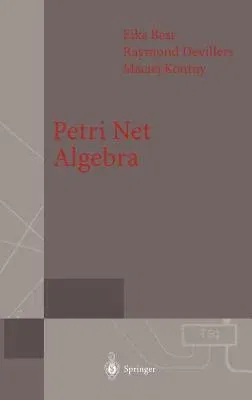Eike Best
(Author)Petri Net Algebra (2001)Hardcover - 2001, 26 January 2001

Qty
1
Turbo
Ships in 2 - 3 days
In Stock
Free Delivery
Cash on Delivery
15 Days
Free Returns
Secure Checkout

Part of Series
Monographs in Theoretical Computer Science. an Eatcs
Part of Series
Monographs in Theoretical Computer Science
Print Length
378 pages
Language
English
Publisher
Springer
Date Published
26 Jan 2001
ISBN-10
3540673989
ISBN-13
9783540673989
Description
Product Details
Book Edition:
2001
Book Format:
Hardcover
Country of Origin:
DE
Date Published:
26 January 2001
Dimensions:
24.21 x
16.33 x
2.67 cm
ISBN-10:
3540673989
ISBN-13:
9783540673989
Language:
English
Location:
Berlin, Heidelberg
Pages:
378
Publisher:
Series:
Weight:
698.53 gm